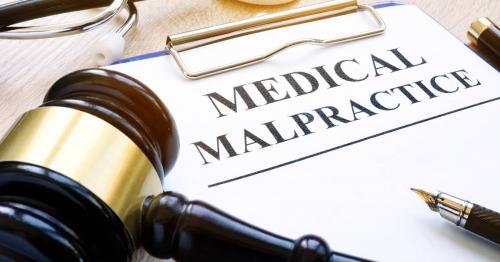What Exactly Constitutes Medical Malpractice?

The phrase "medical malpractice" refers to negligence or other unethical action on the part of a healthcare professional, such as a doctor, dentist, chiropractor, optometrist, nurse, and so forth. Because medical misconduct is unacceptable because it causes harm to patients, people can sue medical practitioners if they commit malpractice while treating them. Professional malpractice claims are typically complex, costly, and difficult to establish but efficient lawyers are there to help us.
Common malpractices
MISDIAGNOSIS
Sadly, inaccurate diagnoses occur regularly. A misdiagnosis occurs when a doctor fails to recognize the condition or issues that the patient is dealing with. This can lead to a number of problems, such as incorrect prescriptions and the patient's condition getting worse to the point that it is challenging to manage. A delayed diagnosis could, in some cases, become fatal because timing is so important for medical treatment. If a treatment window is missed, a misdiagnosed condition could become incurable, cause wrongful death, or have severe, permanent aftereffects.
Delayed diagnosis
The delayed diagnosis is no different. If a doctor doesn't find the root of the problem right away, it can be too late to fix it. If the doctor is unable to provide the proper diagnosis in a timely manner, the situation may get worse. To establish a delayed diagnosis, you must be able to show that the doctor's assessment of you or a loved one was less accurate than it should have been.
SURGICAL MISTAKES
A surgical error may arise for a variety of causes, including The incorrect course of action was taken, Surgery wasn't necessary, Organ, nerve, or tissue damage that could have been prevented occurred, The surgical equipment was not sterile, Medical supplies being left within the patient's body Poor post-operative care
The hazards connected with surgery are very different from a surgical error. The risks of surgery must be disclosed to you by your doctor, and should one of those risks harm you, you do not have a claim for medical negligence. However, you should file a case if there was a surgical error or anything that shouldn't have happened during your surgery.
ERROR IN HANDLING
Failure to treat happens when the patient is given a proper diagnosis but that diagnosis is never carried through, in contrast to misdiagnosis. This involves releasing a patient too soon, failing to provide the appropriate follow-up treatment, or failing to provide the level of care necessary for their particular disease. These are all examples of medical negligence. You must be able to demonstrate that you didn't obtain the minimal level of care that a qualified doctor would have provided you in order to establish that your doctor failed to treat you.
BIRTH INJURIES
The bulk of medical malpractice claims is made against OB/GYNs for birth-related issues including shoulder dystocia, nerve damage, spinal cord injury, cerebral palsy, and cephalohematoma. Since medical errors can cause these injuries, they can all be avoided. Lawyers for medical malpractice primarily focus on birth injury litigation.
DRUG PRESCRIPTION MISTAKES
Misdiagnosis is frequently associated with prescription drug errors, however, this isn't always the case. Sometimes the erroneous prescription is requested or filled, which results in the patient taking the incorrect drug. Medication mistakes can have unfavorable side effects, particularly if they mix with other drugs the patient is taking. You must demonstrate that your prescription was written or filled negligently if you want to show that you suffered medical malpractice as a result of pharmaceutical errors.
MISTAKES IN ANAESTHESIA
Anaesthesia is an essential part of the surgery because it shields patients from any pain while they are under anesthesia. Errors by anesthesiologists could result in death, extreme pain, brain damage, and other serious consequences.
If your doctor or anesthesiologist gave you the wrong post-operative instructions or gave you the wrong dosage of anesthesia, you might be able to file a medical malpractice claim.
While you are under anesthesia, incorrect vital sign monitoring as well as malfunctioning monitoring or anesthetic administration equipment may result in medical negligence.
ERROR IN PREVENTING OR TREATMENT OF INFECTIONS
Infection is quite likely to spread in hospitals. You could get an illness if the environment is unhygienic or if your medical professionals utilize non-sterilized equipment. In this instance, failing to maintain the hospital or healthcare facility clean would constitute a failure to prevent an illness from occurring.
Medical malpractice may also be deemed to have occurred if the infection was not properly treated after that. Sepsis, which can be fatal if untreated, is a serious condition that can result from infections.
Conclusion
The accepted procedures within the medical profession serve as the foundation for good medical care. It can be very challenging to establish medical malpractice because the issues are inherently complicated and can take many different forms. It is significant to remember that a negative consequence or a straightforward error on the part of a medical professional is not necessarily sufficient to support a medical malpractice claim. A claim for medical malpractice must contain a component of negligence. Expert lawyers will be able to help people to file the lawsuit otherwise it would be difficult.
Post Your Ad Here
Comments